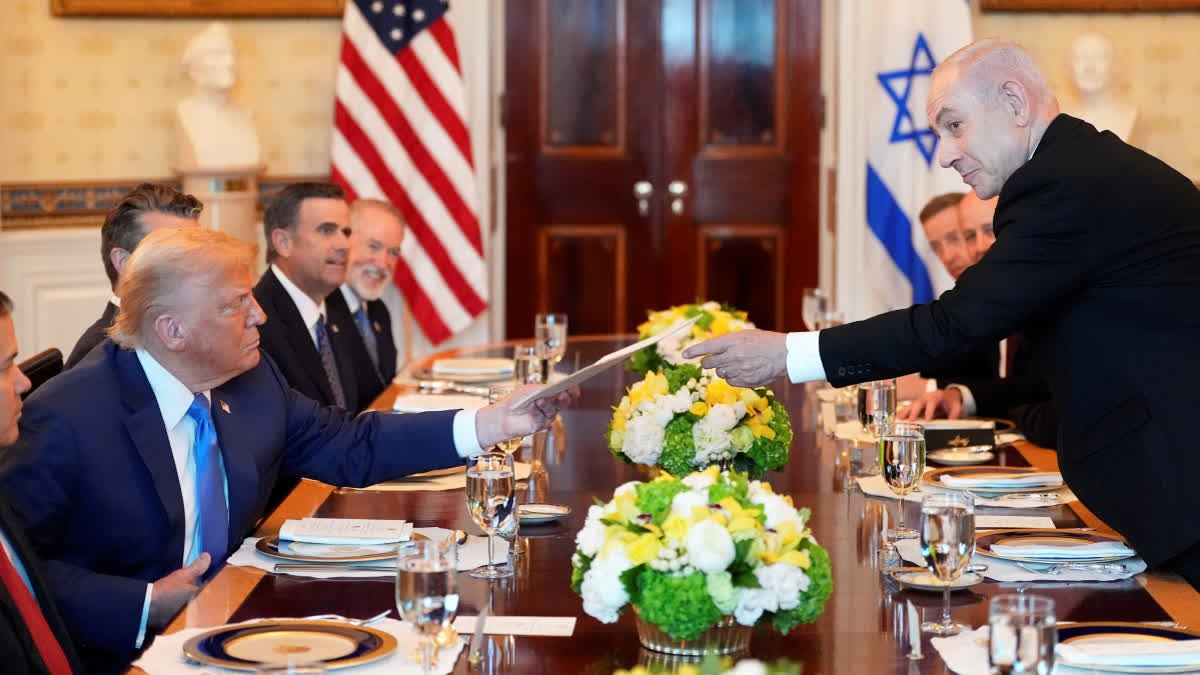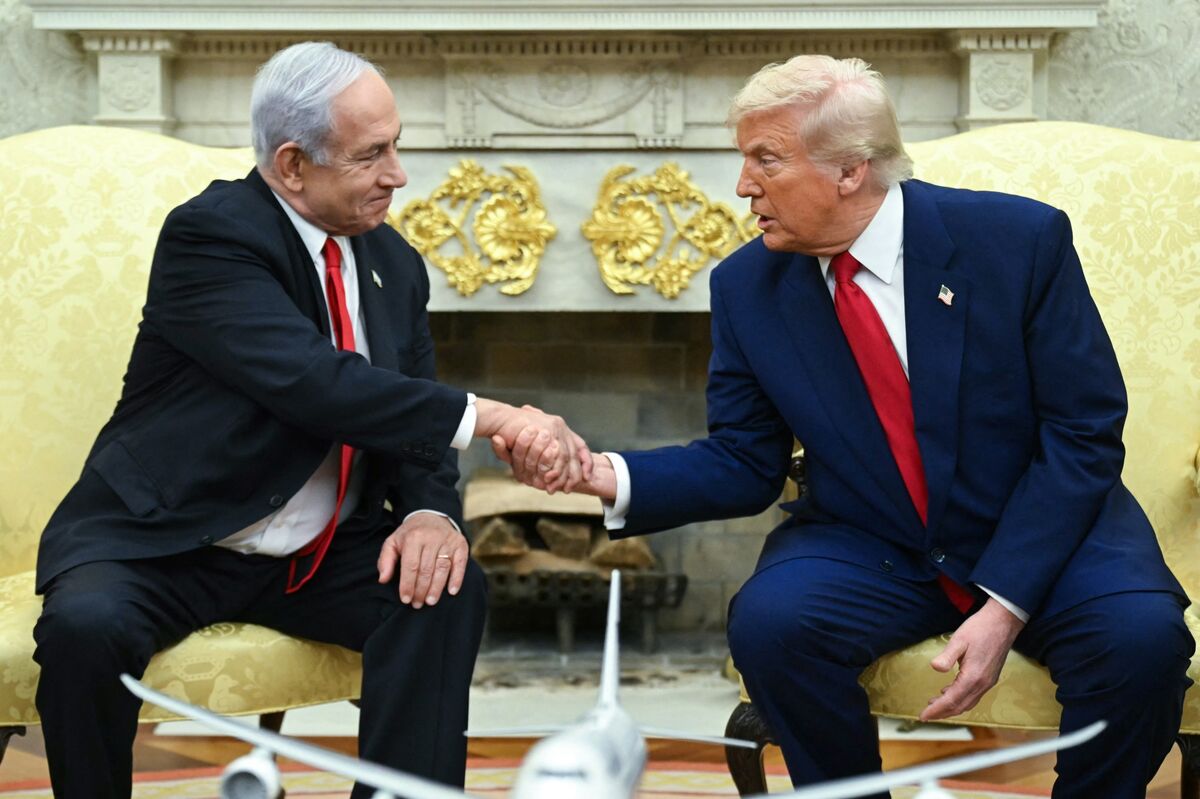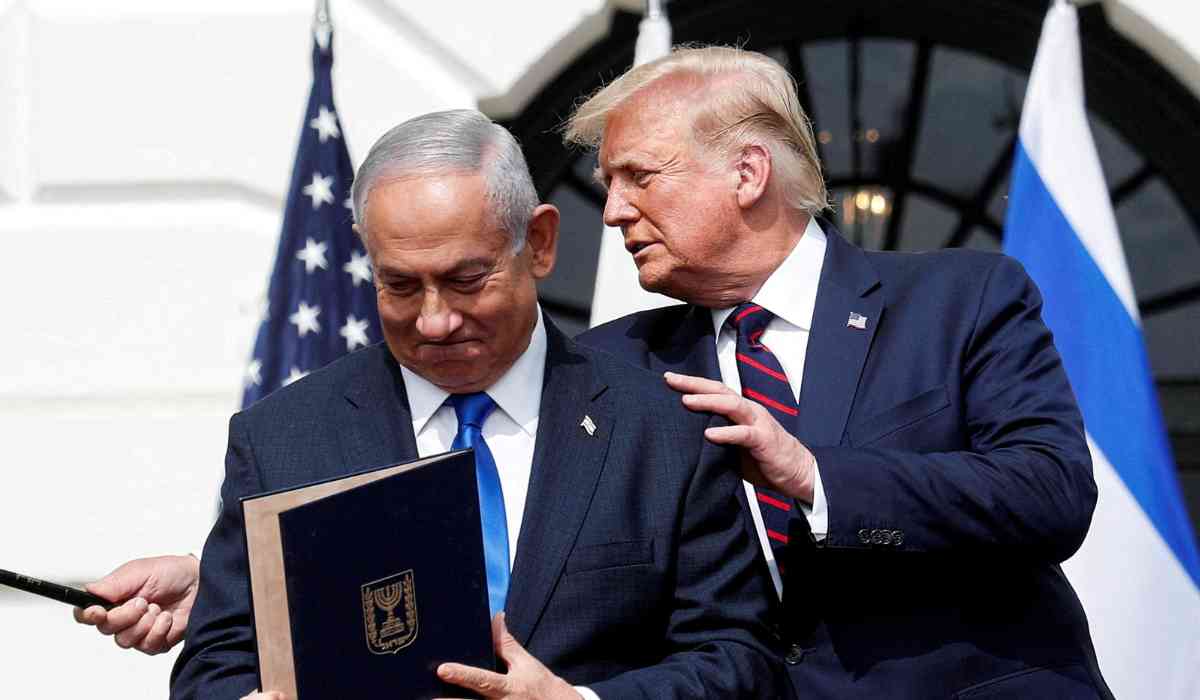In a significant show of international recognition, former U.S. President Donald Trump has now been nominated for the Nobel Peace Prize by both Israel and Pakistan—two countries often positioned at ideological opposites. The double nomination marks a pivotal moment in Trump’s long-standing pursuit of the prestigious honor, and it raises an important question: Does this strengthen his chances of finally winning the Nobel Peace Prize?

Israel’s Formal Nomination: Netanyahu’s Endorsement at the White House
On Monday, July 7, Israeli Prime Minister Benjamin Netanyahu took the historic step of personally handing over a copy of Trump’s nomination letter during an official dinner meeting at the White House. The encounter marked the first face-to-face engagement between the two leaders since their countries jointly conducted strikes on Iran’s nuclear facilities.
Speaking directly to Trump during the meeting, Netanyahu said:
“The President has already realised great opportunities. He forged the Abraham Accords. He’s forging peace as we speak in one country, in one region after the other. So, I want to present to you, Mr. President, the letter I sent to the Nobel Prize Committee. It’s nominating you for the Peace Prize, which is well deserved, and you should get it.”
A visibly surprised Trump responded:
“Thank you very much. This I didn’t know. Wow. Thank you very much. Coming from you in particular, this is very meaningful. Thank you very much, Bibi.”
Netanyahu didn’t stop at the nomination letter. In a highly emotional and public endorsement, he lauded Trump’s contributions to international peace and diplomacy, especially in the Middle East.
“I want to express the appreciation and admiration not only of all Israelis, but of the Jewish people and many, many admirers around the world, for your leadership—the leadership of the free world, of a just cause, and the pursuit of peace and security which you are leading in many lands.”
Netanyahu noted that the Trump administration’s legacy includes the Abraham Accords, a groundbreaking diplomatic breakthrough that normalized relations between Israel and multiple Arab nations, including the United Arab Emirates and Bahrain.
Pakistan’s Nomination: A Surprising Diplomatic Gesture
Just weeks before Israel’s announcement, Pakistan’s government had already submitted a formal recommendation for Trump’s Nobel Peace Prize nomination. The move stunned many observers, given the historically tense relationship between Trump-era Washington and Islamabad.
Pakistan's nomination cited Trump’s “decisive diplomatic intervention” during Operation Sindoor, a period of heightened military activity between India and Pakistan.
In its official statement, the Pakistani government highlighted Trump's actions:
“At a moment of heightened regional turbulence, President Trump demonstrated great strategic foresight and stellar statesmanship through robust diplomatic engagement with both Islamabad and New Delhi.”
The statement credited Trump with averting a potentially catastrophic conflict between the two nuclear-armed neighbors:
“This intervention stands as a testament to his role as a genuine peacemaker and his commitment to conflict resolution through dialogue.”
Trump himself has often claimed that he played a central role in preventing war between India and Pakistan. India, however, has maintained that a ceasefire understanding was achieved through direct military-to-military talks between the two countries’ Directors General of Military Operations (DGMOs), without any third-party mediation.

How the Nobel Peace Prize Nomination Works
Trump’s dual nominations have reignited global curiosity about how the Nobel Peace Prize process actually works.
Each year, the Norwegian Nobel Committee awards six prestigious prizes across various disciplines, including peace, physics, chemistry, literature, medicine, and economics. The Peace Prize, perhaps the most politically symbolic, is open to both individuals and organizations.
But who can nominate someone for this esteemed honor?
Here’s a breakdown of eligible nominators for the Nobel Peace Prize:
-
Heads of state and members of national governments
-
Members of the International Court of Justice and Permanent Court of Arbitration in The Hague
-
University professors in select disciplines (history, law, theology, etc.)
-
Former Nobel Peace Prize winners
-
Members and advisors of the Norwegian Nobel Committee
-
Directors of peace research and foreign policy institutes
Importantly, individuals cannot nominate themselves, and nominations are not considered endorsements by the Nobel Committee. In fact, nominees’ names and their nominators are kept strictly confidential for 50 years.
What Happens After a Nomination?
The nomination process begins with the Nobel Committee sending invitations to qualified nominators, who must submit their candidates by January 31 each year. Late submissions roll over to the next cycle.
After collecting the nominations, the five-member Norwegian Nobel Committee, along with its Secretary, reviews all valid entries and creates a shortlist of 20 to 30 candidates. From mid-February to September, committee members deliberate and prepare detailed reports on each finalist.
The final decision is made via a simple majority vote, and the winner is publicly announced in October. However, the identities of both nominees and nominators remain a secret unless revealed by those involved.
This veil of secrecy makes it unclear whether Pakistan and Israel’s endorsements will meaningfully influence the final vote—but they undeniably spotlight Trump’s ongoing global impact.

Trump and Netanyahu: A Longstanding Alliance
The White House dinner where Netanyahu presented the nomination was more than symbolic. The two leaders reminisced on years of collaboration, particularly during Trump’s presidency.
“We’ve had a tremendous success together,” Trump remarked. “We’ve worked together for a long time. We’ve done well together. We had a great result recently. And we’re going to have a lot of great results.”
Netanyahu also met separately with U.S. Secretary of State Marco Rubio at Blair House during his U.S. visit. The two reportedly discussed strengthening U.S.-Israel ties and tackling shared regional challenges, according to Netanyahu’s post on social media platform X (formerly Twitter).
Meanwhile, Netanyahu continues to push for a ceasefire deal with Hamas, amid ongoing hostage negotiations following the October 2023 attacks. He has expressed hope that U.S. diplomacy—including Trump’s continued involvement—could help “advance” these critical discussions.
Will Trump Win the Nobel Peace Prize?
Trump has been nominated for the Nobel Peace Prize multiple times throughout his political career but has yet to win. While critics often question the sincerity or political motivations behind such nominations, the support from both Israel and Pakistan—two unlikely allies—adds an intriguing dimension.
Whether or not the Nobel Committee agrees remains to be seen. What’s certain is that Trump continues to be a polarizing yet undeniably impactful figure on the world stage, and this twin endorsement could solidify his status as a contender in the global peace narrative.
With inputs from agencies
Image Source: Multiple agencies
© Copyright 2025. All Rights Reserved Powered by Vygr Media.

























